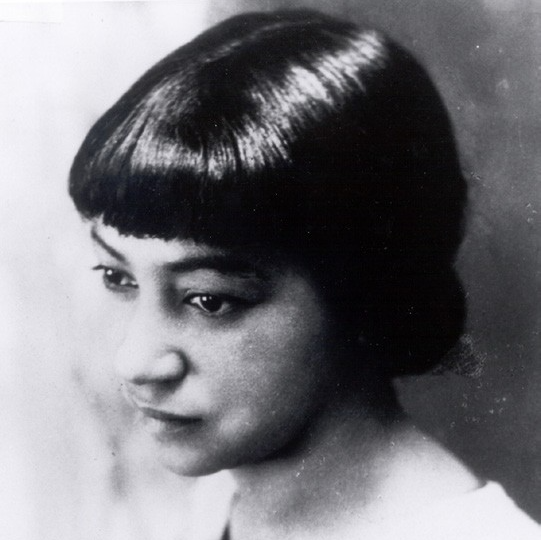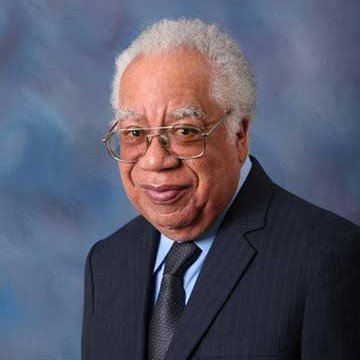10 Black pioneers in mental health you should know
THEY’VE BROKEN BARRIERS AND TRANSFORMED THE FIELD OF PSYCHOLOGY
Black mental health professionals have been advancing mental health research, treatment, and advocacy for over a century. Their work has not only made strides in culturally-competent care for Black communities, but for the world at large.
To celebrate Black History Month, here are some incredible Black trailblazers whose contributions to the field of psychology are often overlooked. They’ve conducted international research, founded new treatment methods, influenced Supreme Court decisions, and so much more. Here are 10 Black pioneers in mental health that you should know.
Solomon Carter Fuller, M.D.
(1872 - 1953)
Dr. Solomon Carter Fuller was the first Black psychiatrist in the US, and he was selected by Dr. Alois Alzheimer to join him as a research assistant at his lab in Munich, Germany. There, Dr. Fuller conducted research on brain samples from Alzheimer’s patients, observing the physical impact of the disease on the brain. When he returned to the US, he continued to do autopsies to confirm the disease was a physical one, and he eventually published the first comprehensive review of Alzheimer’s.
(Decision Lab)
Francis Cecil Sumner, Ph.D.
(1895 - 1954)
Dr. Francis Cecil Sumner is considered “ the father of Black American psychologists” because he was the first Black man in the US to earn a doctorate in psychology. Dr. Sumner established and headed Howard University's department of psychology. The creation of this new department was crucial to support the next generation of psychologists at the historically Black university. One of Dr. Sumner’s most influential students was Dr. Kenneth Clark (who’s featured later in this list!).
Inez Beverly Prosser, Ph.D.
(1895 - 1934)
Dr. Inez Beverly Prosser graduated from the University of Cincinnati in 1933 and became the first Black woman in the US to earn a PhD in psychology. Her dissertation explored the impact of segregation and racial inequality on the self-esteem and relationships of Black students in the Cincinnati area. She went on to teach at historically Black colleges, where she helped students fund their education and graduate research.
(Wikimedia Commons)
Mamie Phipps Clark, PhD & Kenneth Clark, PhD
(1917 - 1983) & (1914 - 2005)
Dr. Mamie Phipps Clark and Dr. Kenneth Clark were a pair of psychologists (and eventually spouses) who partnered on research that explored the self-image of Black children. The Clarks opened the Northside Center for Child Development in 1946. They continued to research the impact of racism in education, including the famous doll experiments that found Black children internalized the racism they experienced in segregated schools. Because of their research, the Clarks were called to testify as expert witnesses in the landmark Brown v. Board of Education Supreme Court case.
Joseph L. White, Ph.D.
(1932 - 2017)
Dr. Joseph L. White, also known as “the godfather of Black psychology,” helped make education more accessible and psychology more inclusive. He contributed to the Educational Opportunity Program, which provided educational opportunities to low-income and first-generation college students in California. In the field of psychology, Dr. White founded the Association of Black Psychologists and advocated for a culturally-informed understanding of Black psychology.
(Wikimedia Commons)
Maxie Clarence Maultsby, Jr, M.D.
(1932 - 2016)
Dr. Maxie Clarence Maultsby, Jr founded a new form of psychotherapy called rational behavior therapy (RBT). It was unique in its emphasis on self-counseling, where patients were given “homework” to help them develop healthier habits, routines, and ways of thinking. Dr. Maultsby founded more self-help treatment methods throughout his career and created The International Association for Clear Thinking in 1978.
E. Kitch Childs, Ph.D
(1937 - 1993)
Dr. E. Kitch Childs dedicated her career to breaking down barriers to mental health services for marginalized people, including sex workers, LGBTQ people, and people living with HIV. She tried to normalize her therapy sessions by hosting them in her living room, sitting on the floor. Dr. Childs also centered the experiences of Black women in her research, introducing concepts like racism and tokenism to the literature of feminist psychology.
Beverly Greene, Ph.D.
(1950 - PRESENT)
Dr. Beverly Greene found her start in the feminist psychology movement, but she soon realized that there were factors besides gender that contributed to a person’s complex identity. Dr. Greene pushed for an intersectional understanding of psychology. She argued that mental health professionals need to recognize the unique experiences and perspectives of marginalized people in their care. Her contributions to psychological literature have earned her over 40 national awards.
Dr. Jennifer Eberhardt
(1965 - PRESENT)
Dr. Jennifer Eberhardt is best known for her work evaluating the relationship between psychology, race, and crime. Through experiments, studies, and data analysis, Dr. Eberhardt has exposed the way that negative associations and beliefs about Black people shape the criminal justice system. The findings she’s gathered across three decades have been instrumental in proving the existence of unconscious bias.
—
This Black History Month (and beyond), learn about even more Black pioneers in mental health, and explore the IDONTMIND’s resources for BIPOC mental health.










